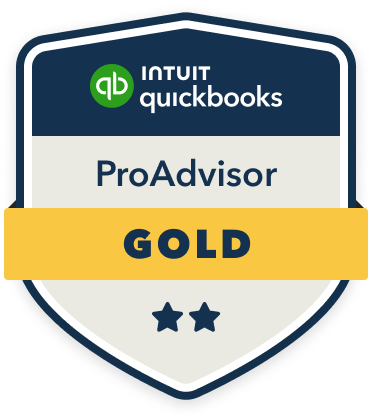Continuous Improvement: Growing Your VA from Bill Entry to Trusted Bookkeeping Partner
Continuous improvement isn’t just a catchphrase—it’s the key to transforming your Virtual Assistant (VA) from a task-based bill entry clerk into a strategic, trusted bookkeeping partner. For many small business owners, the promise of delegation can feel risky. As one expert notes, “Small business owners often worry that handing over financial tasks means losing control over their cash flow, accuracy, or compliance.” But what if your VA’s journey could actually empower you to scale, streamline, and strengthen your financial operations?
From Bill Entry to Bookkeeping: The Growth Pathway
The role of a bookkeeping VA is far more dynamic than most realize. Yes, it often starts with basic tasks like recording bills and invoices, managing receipts, and maintaining expense logs. This foundational work is essential, but it’s just the beginning.
As your VA gains experience, they can take on increasingly complex responsibilities:
– Tracking income and expenses to ensure every transaction is accounted for and categorized correctly.
– Managing accounts payable and receivable, including preparing and sending invoices, following up on late payments, and paying bills on time.
– Bank reconciliations to keep your records accurate and up-to-date.
– Sales tax preparation and filing, so you stay compliant and avoid penalties.
– Preparing financial statements like profit and loss reports—giving you a clear snapshot of business health.
This progression isn’t automatic; it comes from ongoing skill development, mentorship, and exposure to new tools and processes.
Challenging the Belief: VA Roles Are Static
A common misconception is that VA roles are fixed: a VA who enters bills will never do more than data entry. This belief overlooks the potential for VAs to grow into strategic financial partners—provided they have the right support and learning opportunities.
Continuous improvement is the secret ingredient. When you invest in training and give your VA access to professional development—such as QuickBooks Online Certification, bookkeeping courses, or specialized software training—you unlock new capabilities. This approach transforms your VA from a reactive worker to a proactive, trusted advisor who can:
– Spot discrepancies or inefficiencies in your financial processes.
– Suggest improvements to cash flow management.
– Provide regular, insightful updates so you’re never in the dark about your company’s financial health.
Building a Pathway for Skill Growth
The pathway to an empowered bookkeeping VA includes several steps:
1. Foundational Training: Start with online courses covering basic accounting and bookkeeping principles. QuickBooks Online Certification is a strong choice, offering practical, hands-on knowledge that applies directly to small business needs.
2. Software Mastery: Encourage your VA to gain proficiency with tools like QuickBooks, Xero, or Sage. The ability to work confidently in these platforms is a game-changer—enabling faster, more accurate financial reporting and analysis.
3. Structured Workflows: Adopt tools like Asana or Trello to help your VA manage multiple tasks, track deadlines, and maintain organized records. This raises both productivity and accountability.
4. Ongoing Education: Support your VA in attending webinars, joining bookkeeping communities, and seeking feedback from seasoned professionals. This keeps their skills sharp and relevant.
5. Regular Communication: Foster open, clear communication—encouraging your VA to ask questions, share insights, and provide updates. Transparency builds trust and helps your VA feel like part of your team.
The Emotional Payoff: Excitement About Scaling With Help
Imagine the relief and excitement of knowing your finances are not just managed, but actively optimized by someone who understands your business. As your VA’s confidence and skill grow, so does their ability to offer strategic advice, spot opportunities, and tackle challenges before they become problems.
This evolution means you aren’t simply outsourcing tasks—you’re building a partnership. Your VA becomes an extension of your vision, helping you scale operations, seize new opportunities, and weather the inevitable storms of entrepreneurship.
Leveraging Fractional CFOs and QuickBooks ProAdvisors
Continuous improvement doesn’t happen in a vacuum. Sometimes, you need expert guidance to leap from good to great. This is where fractional CFOs and QuickBooks ProAdvisors come in.
- Fractional CFOs offer high-level financial expertise on a part-time or project basis. They can mentor your VA, review processes, and help implement best practices for budgeting, forecasting, and strategic planning.
- QuickBooks ProAdvisors are certified experts in QuickBooks who can train your VA, troubleshoot software issues, and ensure you’re getting the most out of your accounting system.
By bringing these professionals into the mix, you accelerate your VA’s learning curve and ensure your financial operations are robust, compliant, and ready for growth.
Overcoming Small Business Owners’ Concerns
It’s natural to worry about handing over financial control. But as your VA’s skills grow, so does their ability to safeguard your interests. With the right training, clear workflows, and expert support, your VA can:
– Keep your books accurate and up-to-date.
– Spot errors or fraud quickly.
– Help you make data-driven decisions.
This isn’t about losing control—it’s about gaining a reliable partner who helps you achieve your business goals.
Conclusion: Grow Together, Succeed Together
The journey from bill entry to trusted bookkeeping partner is built on a foundation of continuous improvement. By investing in your VA’s skill growth, fostering communication, and leveraging expert support, you create a pathway for expanded support and stronger financial operations.
Don’t let outdated beliefs hold you back. Your VA can evolve into a strategic ally—helping you scale your business with confidence and excitement. Embrace the potential, invest in development, and watch your financial operations thrive.
If you’re ready to move from reactive bookkeeping to proactive growth, consider adding a fractional CFO or a QuickBooks ProAdvisor to your team. The clarity and strategic advantage you gain can make all the difference—not just at tax time, but all year round.





